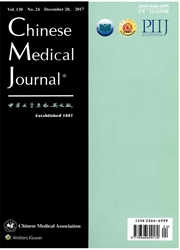

 中文摘要:
中文摘要:
背景表皮的生长因素受体( EGFR )的遗传型与酷氨酸 kinase 禁止者和治疗的有效性被联系,但是它在细胞毒素的化疗的角色仍然是显示的 unknown.Previous 研究某些 EGFR 变化与反应和前进被联系免费幸存追随者铂基于最近的研究识别了的 chemotherapy.Our 在瘤纸巾的 EGFR 遗传型没在中国病人与对首要的化疗的反应被联系
 英文摘要:
英文摘要:
Background The genotype of epidermal growth factor receptor (EGFR) is associated with tyrosine kinase inhibitor and effectiveness of therapy, but its role in cytotoxic chemotherapy is still unknown. Previous studies indicated that certain EGFR mutations were associated with response and progression free survival following platinum based chemotherapy. Our recent studies have identified that EGFR genotypes in the tumour tissues were not associated with response to the first-line chemotherapy in Chinese patients with advanced non-small cell lung cancer (NSCLC). In this study, we investigated associations of EGFR genotypes from plasma of patients with advanced NSCLC and response to first-line chemotherapy and prognosis. Methods We enrolled 145 advanced NSCLC patients who had received first-line chemotherapy in our department. We examined plasma EGFR genotypes for these patients and associations of EGFR mutations with response to chemotherapy and clinical outcomes. Results There were 54 patients with known EGFR mutations and 91 cases of wild types. No significant difference was detected in the response rate to first-line chemotherapy between mutation carriers and wild-type patients (37.0% vs. 31.9%). The median survival time and 1-, 2-year survival rates were higher in mutation carriers than wild-types (24 months vs. 18 months, 85.7% vs. 65.7% and 43.7% vs. 25.9%, P=0.047). Clinical stage (Ⅳvs. Ⅲb), response to the first-line chemotherapy (partial vs. no) and EGFR genotype were independent prognostic factors. Conclusion Plasma EGFR mutations in the Chinese patients with advanced NSCLC is not a predictor for the response to first-line chemotherapy, but an independent prognostic factor indicating longer survival.
 同期刊论文项目
同期刊论文项目
 同项目期刊论文
同项目期刊论文
 Expression of ΔDNMT3B Variants and Its Association with Estrogen/Progestogen Receptor Status in Brea
Expression of ΔDNMT3B Variants and Its Association with Estrogen/Progestogen Receptor Status in Brea 期刊信息
期刊信息
